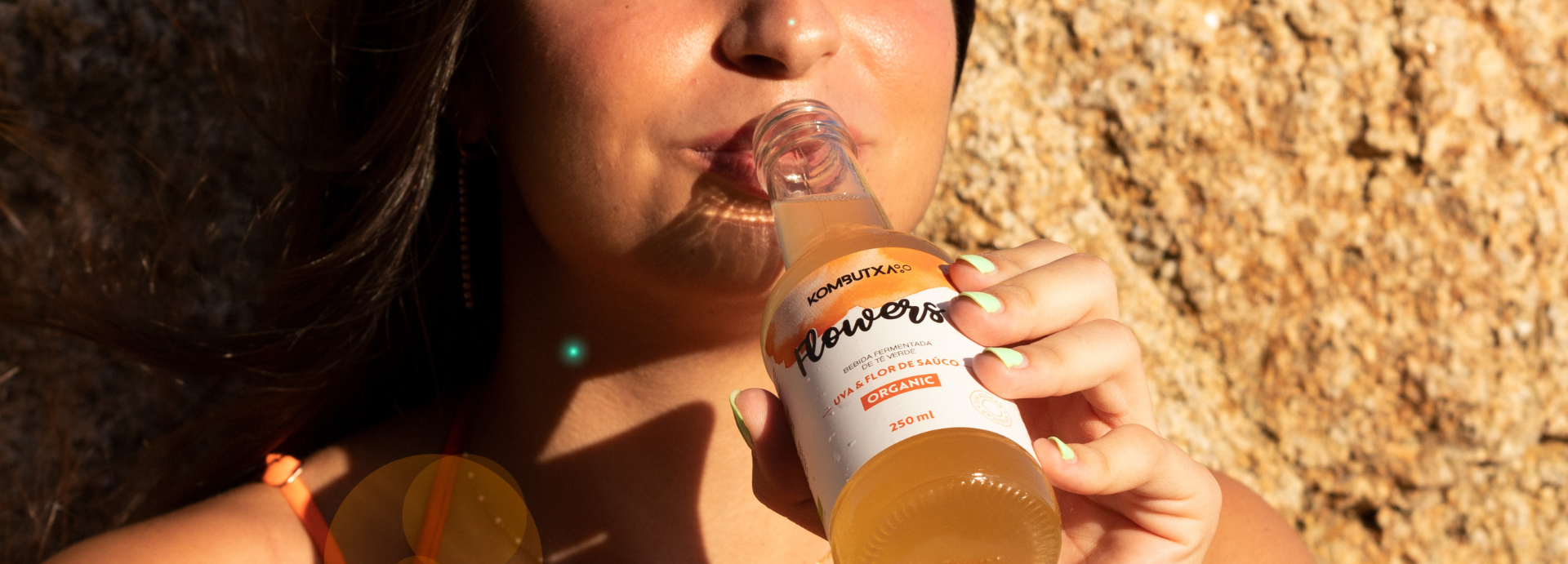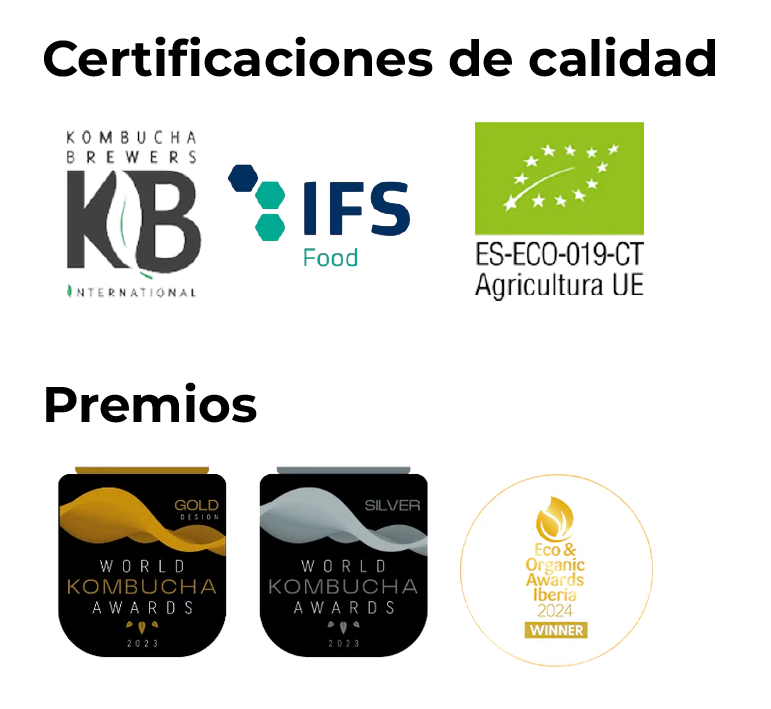Soft drinks imitate fermented drinks, like kombucha
We couldn't agree more with this great reflection from the Kombucha Mamma, Hannah Crum : "soft drinks are an imitation of fermented drinks." And you don't have to think too hard to discover that soft drinks were already born with the clear desire to imitate the characteristics of fermented drinks. All without being able to match the healthy benefits that fermented foods have for our health, arising naturally and truly impossible to match.
We tell you. The first sodas, made from water, sodium bicarbonate and carbon dioxide, were put on the market at the end of the 18th century. And here, the first coincidences already emerged: ingredients to help digestion, bubbles, pleasant flavor. Its consumption was intended to treat problems such as heartburn or indigestion , as well as to control fever , gout and even some nervous disorders .
They were distributed in hospitals and, given the great acceptance and high demand they obtained, they left the pharmaceutical field and gradually became popular until they became what they are today: Bubbles in a drink that is easy for everyone to consume.
Healthy? Between little and very little: with a lot of sugar (later replaced by sweeteners that contribute little), with artificial ingredients, with flavorings and colorings... Everything, to make them more attractive and get the largest number of customers possible. The benefits of fermented drinks were and are far away .
In this case, the dilemma of who came first, whether the chicken or the egg is very easy to answer, don't you think? By the way, if you want to listen to Hannah Crum's podcast with Fatburningman where she discusses, among many other things, the link between fermented foods and soft drinks, we leave you the link .
Drinking soft drinks can ruin your health
When the heat arrives, hydration is key to keeping up. Too often, when we are thirsty, soft drinks displace our water intake, the main source of hydration for human beings.
But drinking soda doesn't come free. Regular consumption of these drinks, loaded with artificial ingredients, sugar and sweeteners, can lead to:
Dehydration : although the base of a soft drink is necessarily liquid, they can cause dehydration due to the high sugar and caffeine content they contain and which increase fluid loss through urine.
Overweight or obesity : Soft drinks contain a large amount of added sugars. Its regular consumption can lead to weight gain or, if consumed in excess, obesity.
Cardiovascular problems : Frequent consumption of soft drinks has been linked to an increased risk of cardiovascular ailments, such as high blood pressure and heart disease.
Type 2 diabetes : The high amount of sugar in soft drinks can increase the risk of developing type 2 diabetes, due to its impact on the body's insulin response.
Dental problems : The phosphoric and citric acids contained in some well-known soft drinks can damage tooth enamel and increase the risk of cavities.
La kombucha como alternativa a los refrescos azucarados

Así, la kombucha puede ser una buena alternativa a los refrescos azucarados. Te recomendamos que leas cómo puedes empezar a tomar kombucha y cuáles son los mejores momentos del día para tomarla.
➡️ El paso a cambiar a una bebida saludable, también burbujeante y con sabores increíbles es muchísimo más fácil de lo que piensas. De hecho, las bebidas fermentadas, con la kombucha al frente, fueron precursoras de los refrescos y estos siempre han intentado imitarlas.
Desde 2015, en MŪN FERMENTS elaboramos la kombucha más deliciosa. A la vez priorizamos tu bienestar haciéndola especialmente sana. La más saludable:
🍃 Nuestra kombucha apenas contiene azúcar: Tenemos 10 variedades que oscilan entre los 0,1 y los 1,8 gramos de azúcar por cada 100 mililitros de producto.
🌍 Sólo utilizamos ingredientes absolutamente naturales, siempre de primerísima calidad y, siempre, de origen ecológico.
✨ No añadimos ni saborizantes, ni colorantes, ni concentrados, ni gas para que produzca burbuja. Nuestras burbujitas se originan espontáneamente durante el proceso de fermentación.
⛩️ Nuestro proceso sigue a pies juntillas la receta tradicional con más de 2.000 años de historia. Nuestra fermentación es larga y pausada con lo que, al no pasteurizar, conseguimos más diversidad microbiana y más ácidos orgánicos. Ah, ¡y muchísimo menos azúcar que otras kombuchas!
💪 Y, para acabar, tomando Mūn mejorarás tus digestiones, tu organismo desintoxicará con más facilidad, sumarás antioxidantes de la manera más fácil y regularás el azúcar en sangre. Encontrarás nuestra kombucha envasada en vidrio y, ahora, también en lata libre de BPA, ¡para llevárte el mejor té fermentado allá donde te apetezca!


